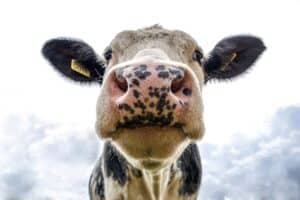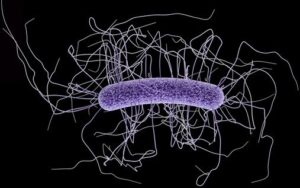It is widely recognized that inadequate dietary methionine can have a negative impact on both
milk protein percentage and milk protein yield. A recent meta-analysis (Wei et al., 2022)
quantified responses in these metrics seen across 14 studies that represented a range of
dietary crude protein levels. Both milk protein concentration and yield were increased in every
trial when rumen-protected methionine was supplemented, with a mean response of 0.1
percentage points and 0.10 pounds; these values were greater when diets contained more than
16% crude protein.
New research presented at the recent ADSA annual meeting (Li et al., 2023) demonstrated that
this influence of methionine supply on milk protein extends beyond simple provision of needed
building blocks.
Reporting on in vitro research done at the University of Guelph, Li and co-authors presented
data highlighting multiple mechanisms by which single essential amino acid deficiencies, and in
particular methionine, inhibit milk protein synthesis. Using mammary epithelial cells, the
researchers evaluated rates of protein, fat and DNA synthesis, endoplasmic reticulum formation,
and mRNA expression of transcription factors believed to be significant in milk protein
generation.
Control cultures were provided with all essential amino acids at levels equivalent to
physiological concentrations normally found in adequately fed cows. Cultures grown in media
with restricted methionine levels exhibited reductions in several key metrics, relative to the
control samples:
- Rate of protein synthesis (p<0.01);
- Rate of DNA synthesis (p < 0.01);
- Rate of Endoplasmic reticulum formation (p < 0.05);
- Expression of FOS, which is involved with multiple types of DNA-binding activity.
Measured anabolic rates were also reduced with inadequate lysine and histidine, while changes
in transcription factors were somewhat variable between amino acid treatments. The rate of
milk fat synthesis was not impacted by a deficiency of any of the tested amino acids.
These results support the authors’ hypothesis that deficiency of certain amino acids (notably
methionine) can affect milk protein synthesis through a combination of transcriptional and
translational activation, stimulation of cell proliferation, and enhanced biogenesis of
endoplasmic reticulum in the mammary gland.
Supplementation of rumen-protected methionine to fully meet the requirement for this
essential amino acid provides the opportunity to support milk protein production via
multiple metabolic processes.
References
Li, B., D. Innes, M. Madison, J. Kim, C. Rodriguez, J. Doelman, and J. Can. 2023. Lysine, methionine, and histidine deficiency affect milk protein synthesis and mRNA expression of transcription factors by primary bovine mammary epithelial cells. J Dairy Sci 106 (ADSA Annual Meeting Supplement): ABSTR 2199. Wei, Chunbo, Tao He , Xuanchen Wan, Siwen Liu, Yibo Dong and Yongli Qu.
- Meta-Analysis of Rumen- Protected Methionine in Milk Production and Composition of Dairy Cows. Animals 12:1505- 1514.


